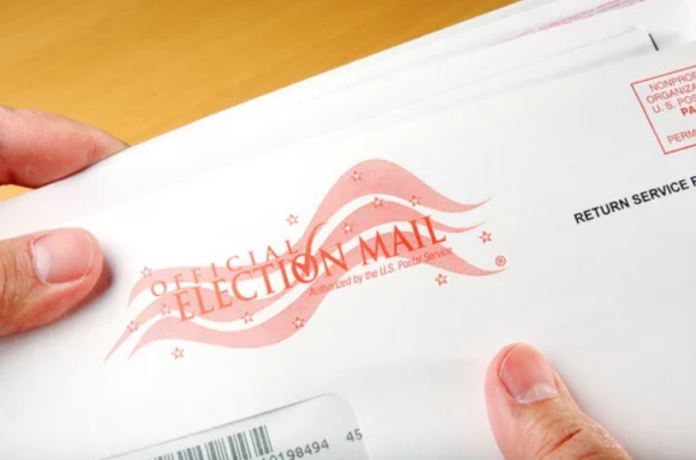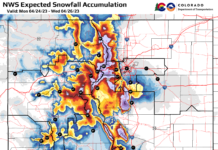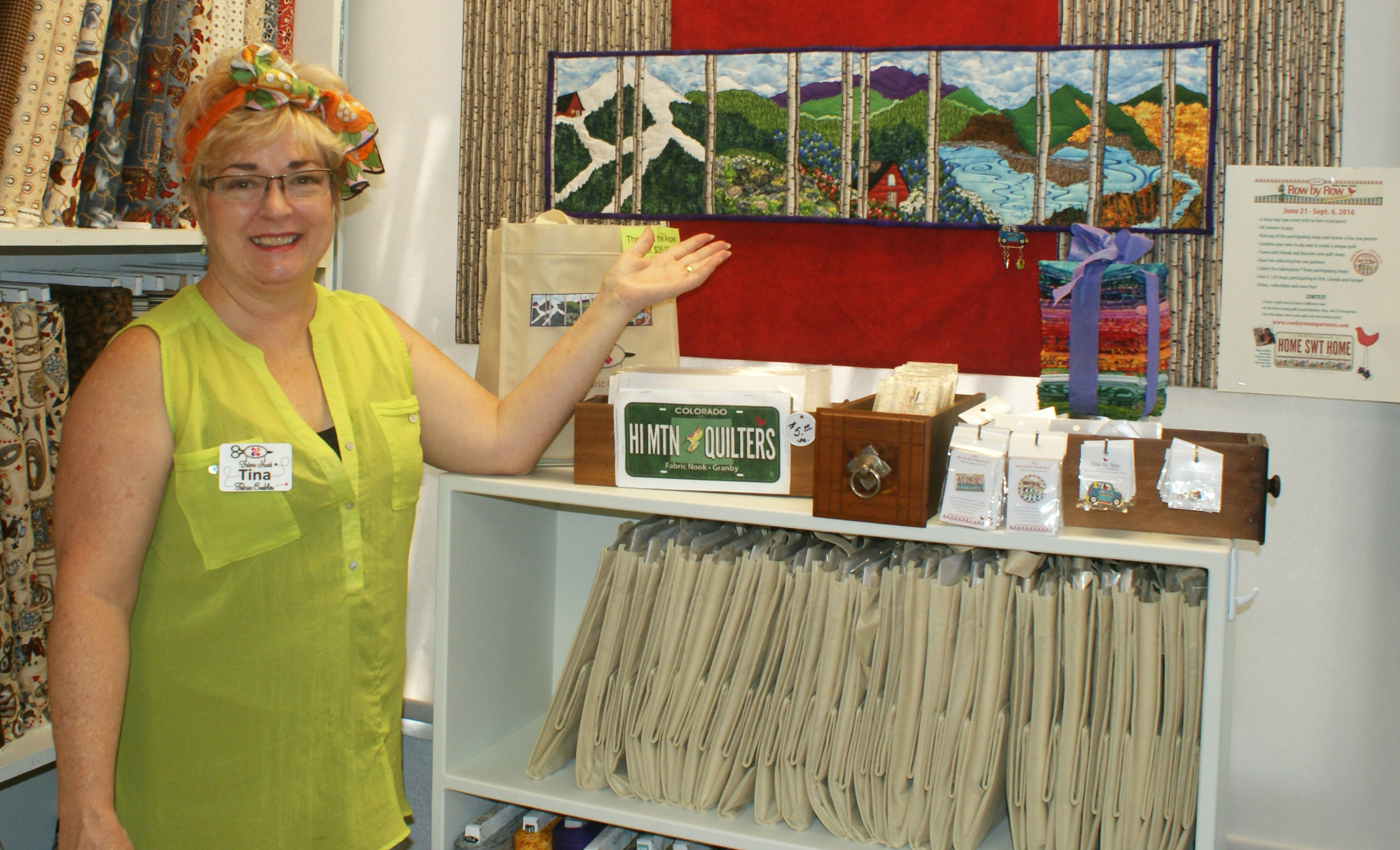by Marissa Lorenz
Off-year elections refer to general elections held in years in which presidential, gubernatorial, and state and federal legislative candidates are not typically put on the ballot. Odd years are generally termed off-year elections. And while they have much lower voter turnout than either presidential or midterm elections, they can be of critical importance in municipal and county-level concerns.
With just under four months to go before this year’s November 2 general election, there are a growing number of measures anticipated to be put before Grand County voters.
Grand County Measures
Grand County government has proposed placing six questions on the November ballot concerning term limits for elected officials
and one measure to increase the mill levy that funds Grand County EMS services, according to Grand County Clerk Sara Rosene.
The six separate term-limit questions would ask local voters to decide whether or not the elected offices of Grand County clerk
and recorder, assessor, coroner, treasurer, surveyor, and sheriff should be subject to term limits.
Currently, electeds to any of these positions may run for re-election as many times as they would like, with many of the offices being held by the same individuals for decades, including Clerk Rosene, Assessor Tom Weydert, and Coroner Brenda Bock.
County Commissioners Kristen Manguso and Rich Cimino agreed to move the issue forward, saying that it was up to the voters to decide whether or not they would like term limits for their elected officials. Commissioner Merrit Linke, each of the other currently serving electeds, and other opponents argued that voters already have the option, every four years, whether to limit someone’s time in office or not.
In 2016, over 82% of Grand County ballots cast for a similar question voted to limit commissioners’ service to three four-year terms. If passed in 2021, the term limits would apply to any of the positions elected in 2022, with the new term being considered the first under any limits. Terms would not be counted backwards for currently-serving officials.
EMS Chief Robert Good approached the Board of County Commissioners (BOCC) to propose the mill levy increase for EMS. If placed on the ballot and approved by voters, a proposed increase to the EMS mill levy would raise a tax set at 2 mills since 2003 to 3.75 mills.
Good stated that the additional funds would help to provide for “compensation adjustments for existing staff, adding staff to meet call volume, an ambulance for additional staff, and capital projects to replace aging EMS facilities.”
He presented a seven-year plan that would see those goals attained if a mill levy increase were approved.
To assess the proposed tax increase and its possibility of passing in 2021, the County has engaged Turn Corps, a Denver-based consulting firm who works with local governments, special districts, et cetera to “implement strategies that gain public support and deliver results.”
Municipal Initiatives and Special Districts
To date, there are no known town initiatives or measures being presented by special districts that are intended to be decided on
in the 2021 general election.
School Districts
West Grand School District (WGSD) has five board seats that will be up for election in November, and the Board has voted to ask for a mill levy override to address staffing issues and needed capital improvements.
Board Member Jessica Smiley is term-limited and will not be able to run again. The seats belonging to Chair Shawn Lechman, Mitch Lockhart, and Shorty Lemon are up for re-election. And newly-appointed Board Member Stuart Heller will have to run for election if he wishes to continue serving on the Board.
Chair Lechman proposed a 4.5 mill levy override at the June 29 special meeting of the Board, pointing to heavy grant dependency, a desire to increase staff salaries and benefits in order to better recruit and retain staff, and needed safety improvements across district buildings.
Director of Finance Martha Schake indicated that the proposed override would bring the District’s total mills to 22, approaching the upper limit of 27.
Some hesitation was expressed around the additional tax burden that the override would place on property owners but consensus
was for collecting additional monies for the District.
As Schake summarized, “A strong educational institution means a stronger community.”
The East Grand School District (EGSD) will have three open Board of Education seats come the fall. Two of those positions can
run for re-election if they wish.
The District has continued discussion about placing a bond issue on the ballot to fund a capital improvement campaign that would include a new Granby Elementary, an addition to Fraser Valley Elementary, and necessary upgrades to the Middle Park Middle School and High School, according to Superintendent Frank Reeves.
East Grand had intended to put forward the question in 2020, a year in which they successfully passed a $1 million mill levy override. However, concerns with COVID-19 and voter receptivity meant the District put off the bond initiative.
Dr. James Chamberlain, Fraser Valley Principal, confirmed this week that “a lot of work is still being done around exploring a possible bond issue” for 2021. He said that it will be discussed at the School Board’s August 8 meeting with a decision expected to be reached during the August 17 meeting.
Statewide issues
Following state statute, odd-year measures can only address topics concerning taxes or other state fiscal business related to TABOR, Colorado’s Taxpayer’s Bill of Rights. Colorado citizens can petition to have a ballot initiative or veto referendum placed on the ballot. Those proposing either in 2021 must collect 124,632 valid voter signatures within the approved time period.
As of July 7, there are no statewide ballot measures that have been certified for inclusion on the fall ballot.
The Colorado Secretary of State lists four potential measures that have been cleared for signature gathering and had a title set by the Colorado Title Board.
The Colorado Custodial Fund Appropriations Initiative (#19) would transfer the power to appropriate custodial funds, such as pension funds and court settlement funds, from the State Treasurer’s Office to the legislature.
The Colorado Learning Enrichment and Academic Progress Program Initiative(#25) would create a program to provide out-of-school opportunities for 5- to 17-year-olds in math, science, reading, writing, music, art, and career education, and offer specialized support for students with special needs. The bill would increase the statewide retail marijuana sales tax from 15% to 20% to partially fund the program.
The Property Tax Assessment Rate Reduction and Voter-Approved Revenue Change bill (#27) would reduce the residential property tax from 7.15% to 6.5% and the non-residential property tax from 29% to 26.5%. It would permit the State to keep and use up to $25 million above the TABOR spending cap each year for a five year period, monies that would otherwise be returned to the taxpayer.
The State Income Tax Rate Reduction Initiative (#31) would reduce the State income tax rate from 4.55% to 4.40%.








